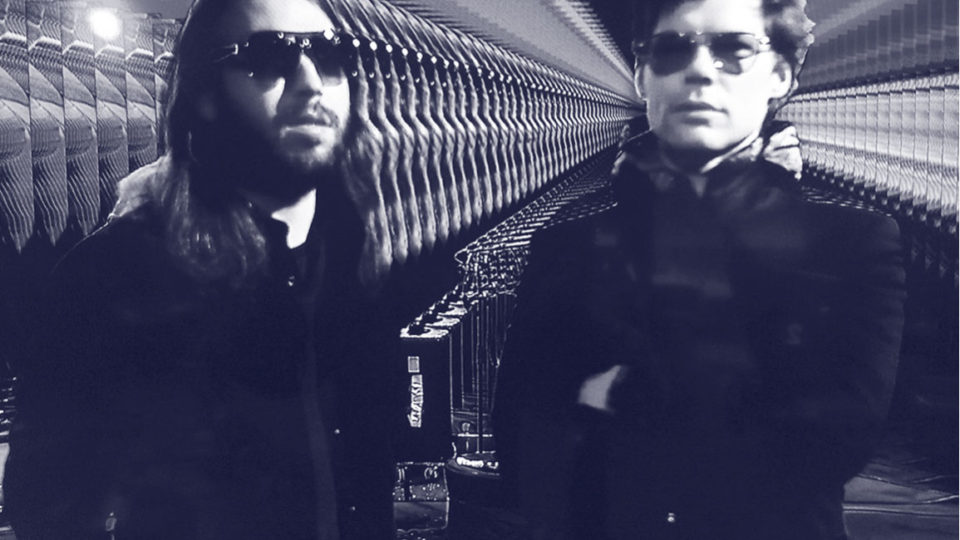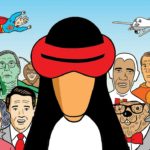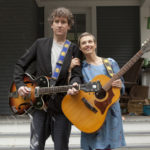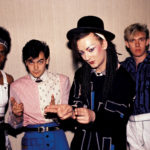A narrow industrial warehouse holds a tattered drum set, checkerboard synthesizer, and two massive amps. Even rows of foldable chairs are splattered with dried paint. Pipes cover the watermarks worked into the ceiling tiles. Strobe lights bounce off the graffiti-filled walls. The harsh fluorescence shines down on two lone performers. Rad Inc. harnesses their creative energy well.
RADinc. harnesses their creative energy well.
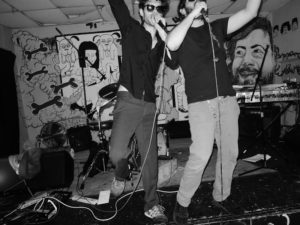
Their attire is nothing to celebrate. The drummer, Kevin Shea, wears a red baseball cap that casts a shadow over half his face and a black oversized shirt. The keyboardist, Matt Mottel, wears a blue bucket hat that covers his long brown hair and a loose button down.
They feed off their energy, glance at each other for cues, manage a few quick laughs, and immerse themselves in their own Antarctica.
Their multi-textured music is hidden underneath a clattering ensemble of sound. It seems at times to have no intention. Their two-part set features eight instrumental songs that make us feel something before they can make any sense of their own.
From Talking Heads’ synthesizers that waver and distort, to Sonic Youth’s percussion that sustains and frustrates, Talibam! is able to, “confront the establishment of culture.”
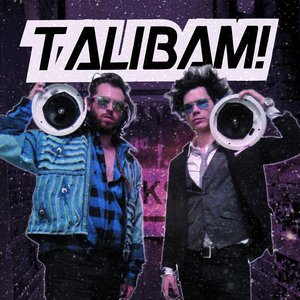
This streamline performance immerses the audience into Antarctica. The disoriented- pixilated- and saturated pictures on screen crackle like an old newsreel. Their meaning is very much up for interpretation. It leads us along in some hazy form of retrospect.
From tranquil mountain peaks- dancing Oompa Loompas- and waddling penguins- to fist-bumping soldiers- floating baby dolls- and drunken hippies- Talibam! creates an out-of-body experience.
The disoriented, pixilated, and saturated pictures on screen crackle like an old newsreel. Their meaning is very much up for interpretation. It leads us along in some hazy form of retrospect. From tranquil mountain peaks, dancing Oompa Loompas, and waddling penguins; to fist-bumping soldiers, floating baby dolls, and drunken hippies, Talibam! creates an out-of-body experience.
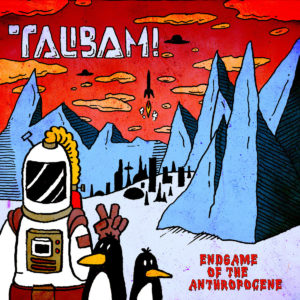
Mottel calls their performance, “An alternative political vision, which was matched by our cultural determination to provide an alternative to the landscape of music and performance we were surrounded by.”

